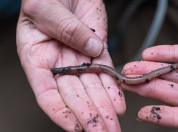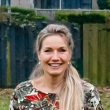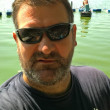Search
Filter by
Type
Tags
Dossiers
Themes
Departments
Active filters
1032 search results
Search results
-
Research data
A data portal has been developed in order to streamline and organise the data and information management of the institute.
-
Passerine behavioural testing facility
The Passerine testing facility offers a unique oportunity to house and measure passerine birds for an array of behavioural tests in a controlled environment.
-
Ecology network
The Netherlands Institute of Ecology (NIOO-KNAW) performs leading ecological research. NIOO-researchers play a key role in the wider network of ecological science and knowledge., in the Netherlands and beyond.
-
Working at NIOO
With more than 200 staff and students, the Netherlands Institute of Ecology (NIOO-KNAW) is one of the largest research institutes of the Royal Netherlands Academy of Arts and Sciences (KNAW). Most are from the world of (international) science: professors, researchers and PhD students. They are joined by indispensable support staff in HR, Science Communication, Finances, ICT and Facilities. Everyone makes their own passionate contribution towards a more liveable world. Does that sound like you?
-
King Willem-Alexander to visit NIOO on 6 July
On 6 July, His Majesty King Willem-Alexander will pay a working visit to the Netherlands Institute of Ecology (NIOO-KNAW) in Wageningen.
-
Molecular laboratory
The molecular laboratories offer a wide range of facilities needed for handling, preparing and analysing a wide variety of DNA and/or RNA samples. The lab is well-equipped, and in addition to the general molecular laboratory there are several specialised laboratories such as an MLII Lab, an RNA Lab and a PCR lab with UV-cupboards.
-
NCSE (National Centre for Soil Ecology)
National Centre for Soil Ecology
-
Jeannette Hagman
Head of Finances
-
Miquel Lurling
Guest researcher
